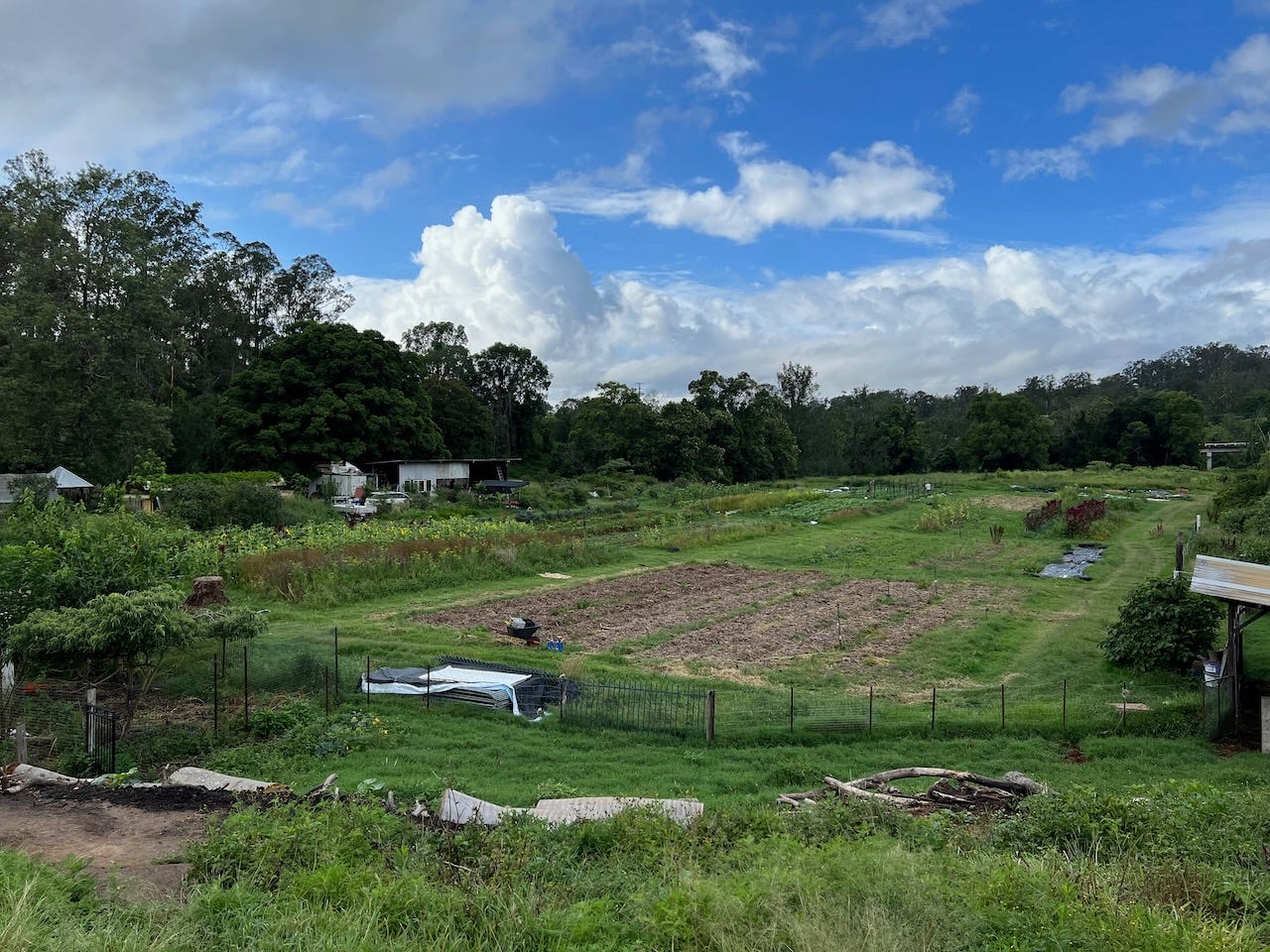My first day on a farm
An attempt to close the knowledge gap between what's on my plate and how it got there.
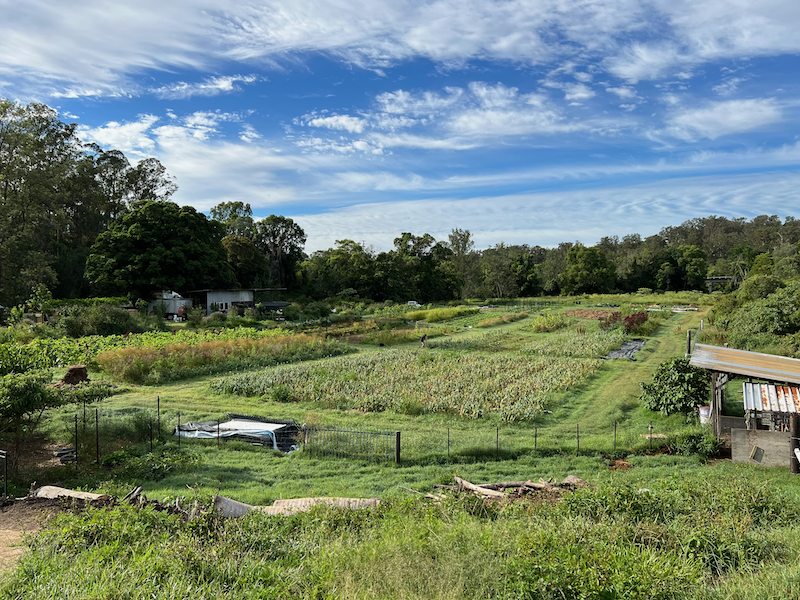
I email a local farm saying I’d like to come out for a day a week over Summer. They say sure, can you come next Tuesday? And I say no but I can do the Tuesday after. And they say sure see you then.
Get to the farm. It’s early for me but late in farm time. Look out see the green and different colours. Can already feel the slowness of it all. Everything synchronised with everything else.
Turn to the left. Walk and see my friend. He lives there in an old trailer. Calls it the F shack. He shows me inside. It’s got enough room to lay down and stand up.
We go on a tour.
There’s a greenhouse made of old pipes. The previous owners left them there. It used to be the place everyone gathered. There’s a bigger shed now. One with running water, a cooker, shade, places to sit.
I’m wearing the wrong shoes.
My feet are wet to the socks. I’m a novice here. I’m used to sitting behind a computer. But I want to do things with my hands. Now I’m on a farm. And I like it already.
My friend makes me a chai tea and we sip and walk and talk. He shows me the goats. Two of them are up for sale. They’re crazy he said. We need to get rid of them. The goats live in a shed. And he tells me they get moved around the place if there’s extra grass somewhere, they let the goats out to take care of it. Extra grass for humans is food for goats.
We walk past the sunflowers, they’re big and yellow and used as cover crop. They protect the crops underneath. There’s rows of cabbage of kale of amaranth of garlic of cucumbers. Things I’ve seen in the store but never knew how they grew. I don’t like that disconnect. Between what’s on my plate and where it started.
I find out today’s a special day. Garlic harvest. A bearded man is digging up a couple of rows already. He planted his own on the farm. The rest of the rows will go to market and local restaurants. Garlic takes seven, eight, nine months to grow. So today’s a special day.
I meet the owners of the business. Alice and Phil. Alice’s father owns the land and six years ago they decided to turn it into something magical.
Farm to fork and fork to farm
Nothing gets wasted here. It’s farm to fork and fork to farm. That explains the name of the place. Loop Growers. Restaurants from around town put in their orders based on what’s in season. Despite my experience at supermarkets, I’m reminded not everything is available all year round.
Loop fulfils the orders, restaurants make food and store the waste in compost bins. Once a week Gav, another farm member, goes around and picks up the bins. Some scraps get used for chicken feed, others to feed the goats when they’re out of grass the rest into old bathtubs filled with worms.
My friend pulls up the sack covering a nearby bathtub. I look inside and get the feeling you get looking at a newborn baby or staring into a dark night sky decorated with stars.
The right half of the bathtub is alive, hundreds, thousands of worms wiggling through soil. The left half full of fruit and vegetable scraps. When the worms are done with the right side, they migrate to the left and turn the scraps into soil like the right. The Lion King was right. Plants die, worms eat, plants grow, people eat, plants die, worms eat. Something like that. Circle of life.
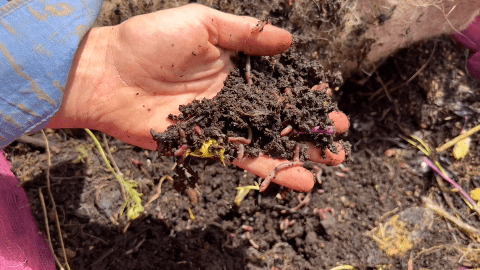
Guess and check
A botanist and a chemist could play here for weeks. Taking samples, analysing them. But I learn that’s not the style here.
Phil tells me it’s more like, did something grow?
If not, let’s change it.
If yes, how can we do it again?
Everyone here’s a scientist. Just without the fancy titles.
Phil says they’ve been trying to figure out what the land wants to grow rather than forcing anything. With nature rather than against it. People come here to learn from us but our secret is that we’re still learning too.
I wonder what would happen if this approach were more widespread.
Are not many of the perils of the modern world from going against nature?
To think what would happen if the efforts dedicated to building machinery like the bulldozer and rocket to manipulate and avoid nature were dedicated to figuring out how to best work with it.
Community powered
My friend and I shovel out excess grass and weeds from the shed to make room for the garlic. Last year half the harvest got lost due to not being undercover. Not this year. There’s more room.
We begin by walking through the rows cutting off the scapes and garlic flowers. Before the bulbs turn into flowers they’re called scapes. I’ve eaten garlic my whole life and only now find out their stalks produce flowers. The flowers are small and purple and smell like garlic and make good garnishes on salads. You can eat them. They taste like garlic.
The garlic bulb grows underground and the plant grows above ground and if it’s ready it produces a bulb at the top, the stalk that produces the bulb is the scape. And if they’re really ready the scape turns into flowers.
Some restaurants like the scapes and the flowers. They use them in various dishes.
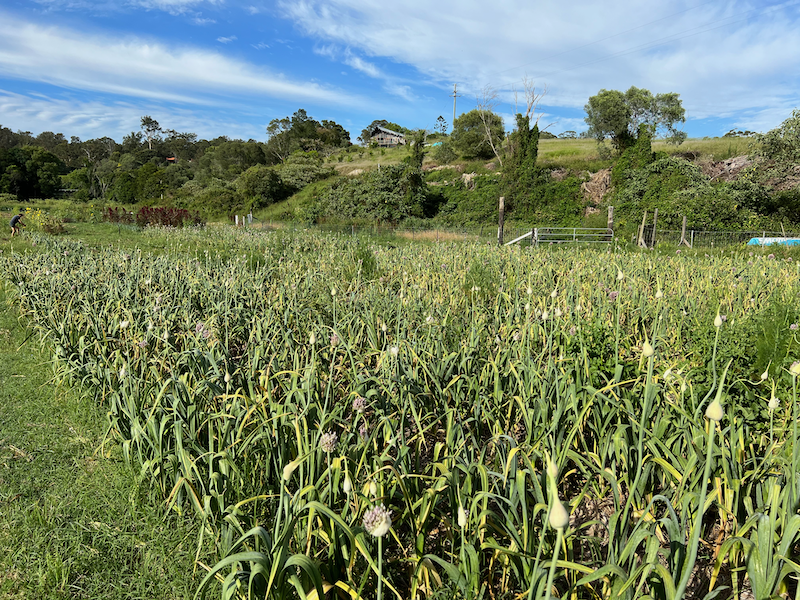
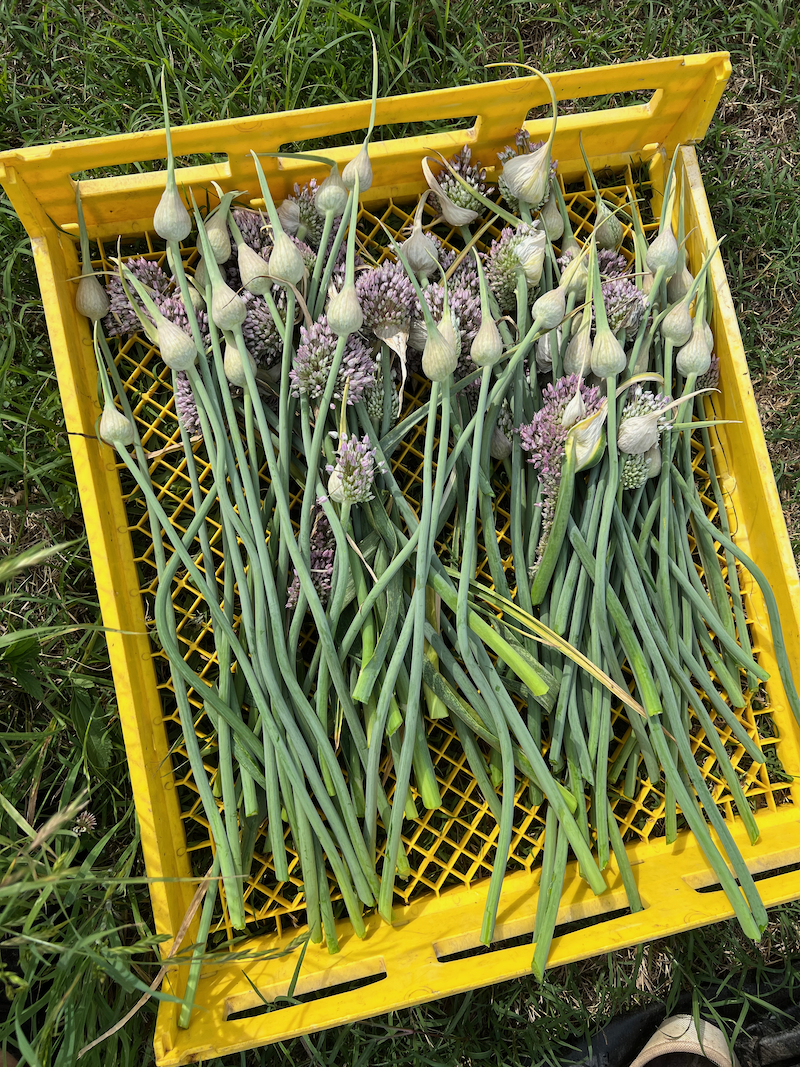
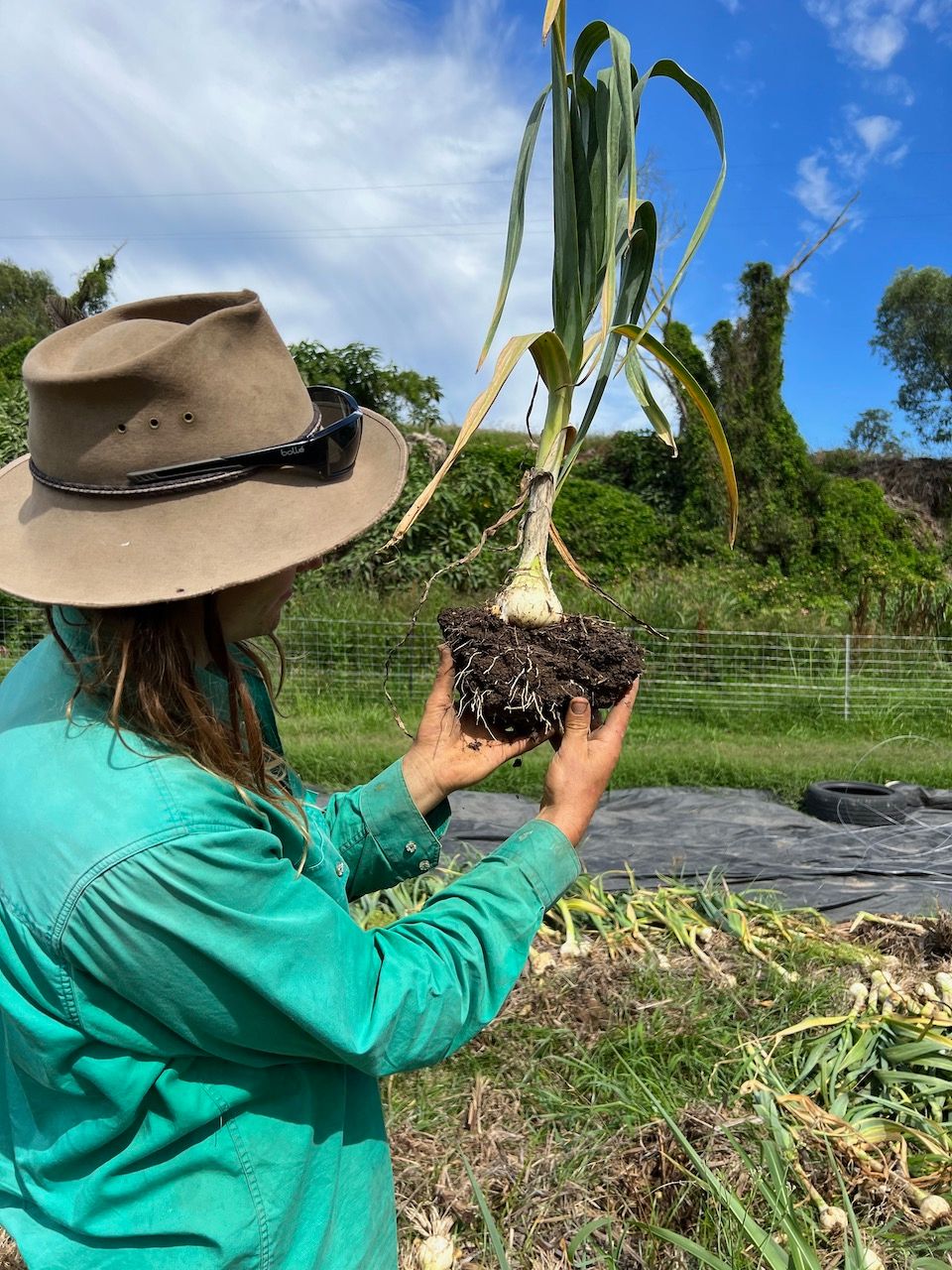
One by one more people begin showing up. Ten, eleven, twelve. Many not even wearing shoes. They join in harvesting the flowers and scapes and talking about what’s going on. My friend introduces me and I learn many of them have been coming here for years. One, two days a week. All volunteers.
The energy is high.
Today’s a special day.
There’s a real feeling everyone’s here for the same reason.
To make good food.
Turns out my father taught two of the volunteers in primary school and again in high school. They tell me stories of when he took them on a swimming camp to an island across the bay. And I remember one of them coming to our family home to take photos of my dad for a photography project they were doing remembering their old teachers.
We pick hundreds of scapes and flowers and fill bucket after bucket. Look over the rows to see if there’s any left. And as if it knew there wasn’t, the gong sounds from the shed.
Morning tea.
One of the women baked cookies for everyone. We sit around the round table next to the hammock under the big tree and sip coffee and tea and eat cookies and talk more about the walks of life that led us here.
We finish and go back to harvesting garlic.
Since garlic grows underground we dig our hands into the dirt and fish it out or drive a pitchfork under its roots and loosen them before pulling it out by its stalk. Once you pull one out you set it down in the path between the beds. That way the garlic can dry out a little before collecting it later.
Sun beaming, lunchtime approaching, we strip off and go swimming in the creek to cool off. Everyone in their underwear. Or less. Some of the women take their tops off and enjoy the cool water on their bare breasts. I went to an all boys Christian school so this is news to me.
A recurring theme of the place is the freedom it provides. You work up a sweat in the fields but that’s all you have to do. No phone calls, emails, meetings go as far as saying hey come and look at this and time’s kept by the sun.
My friend takes me up to the chickens to collect eggs for lunch. One of the hens stays on her perch, must be laying. We collect half a dozen or so eggs and take them back to the shed where they’ll be turned into an omelette along with some of the fresh garlic we’d harvested. The twins baked their first pie and brought it along. Pork and leek and fennel. And I learn again how sacred mealtime is when we all sit around and hold our plates in the air and say cheers.
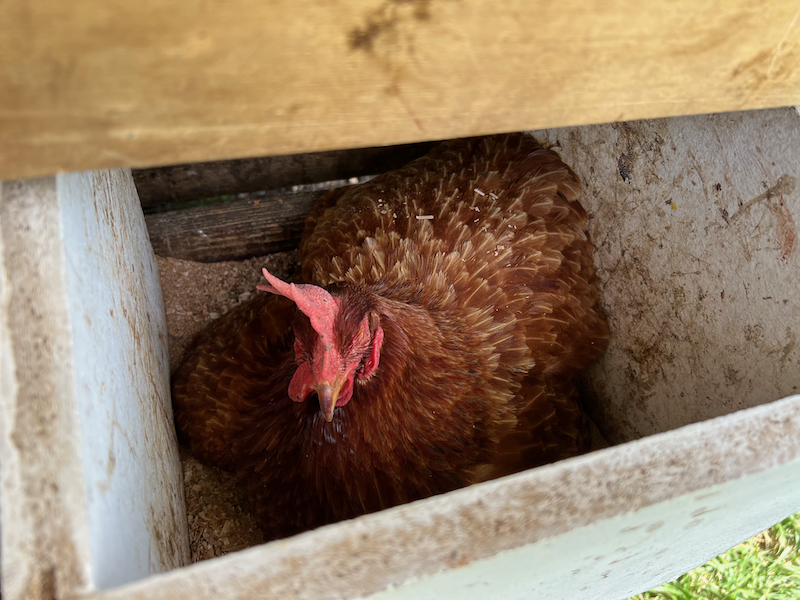
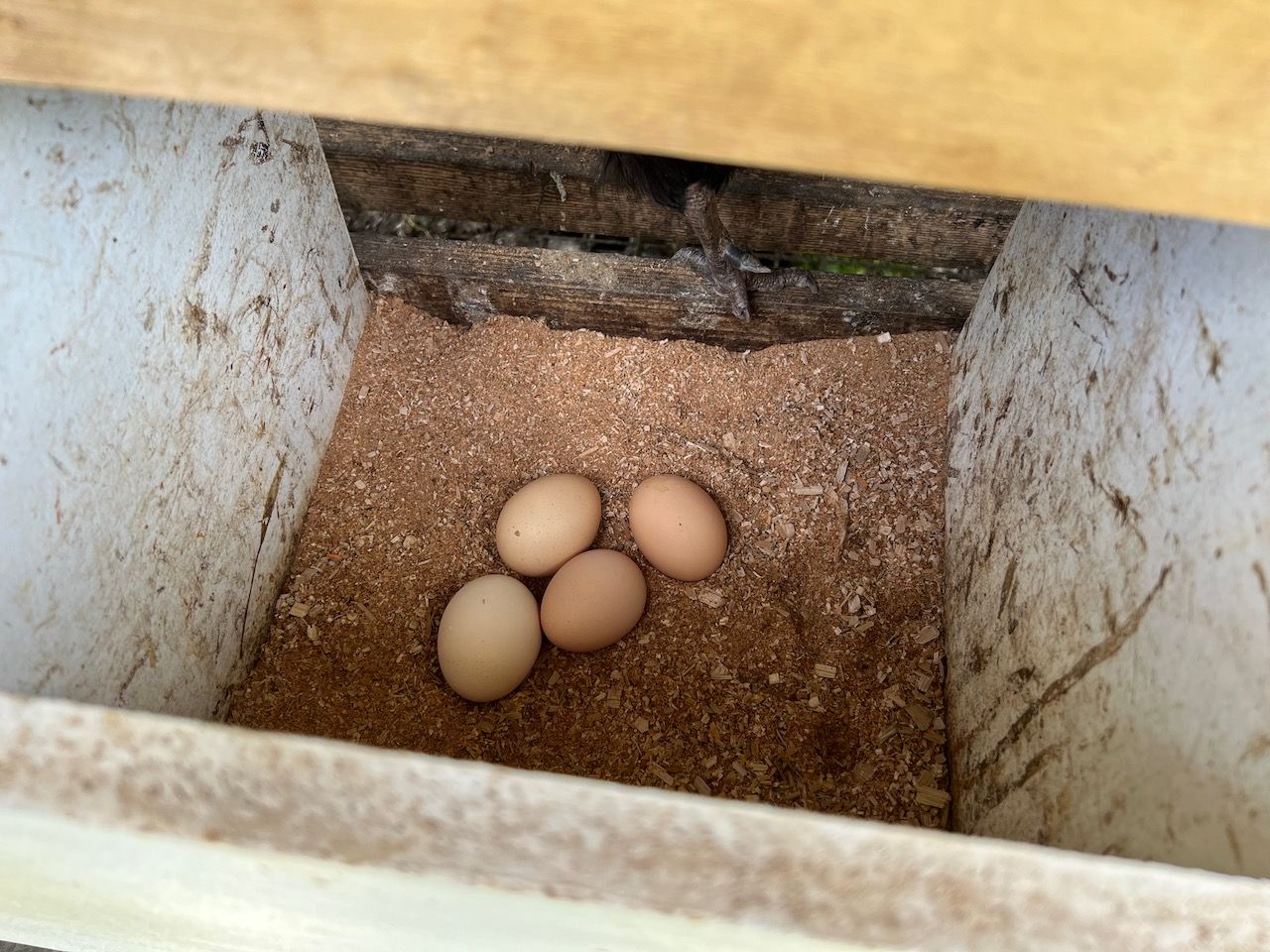
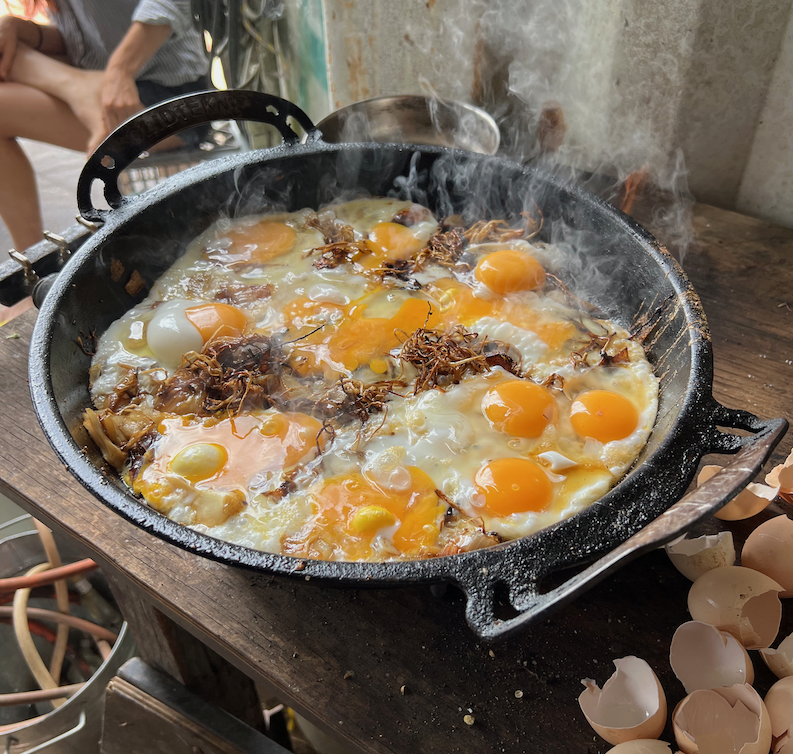
I’ve eaten too much. I go to the hammock and swing. Everyone sits around and lets the midday sun cool down.
The garlic needs to be collected and hung out to dry. Phil tells me it’ll dry out for four to six weeks, some people order it fresh but most wait ‘til it’s dry.
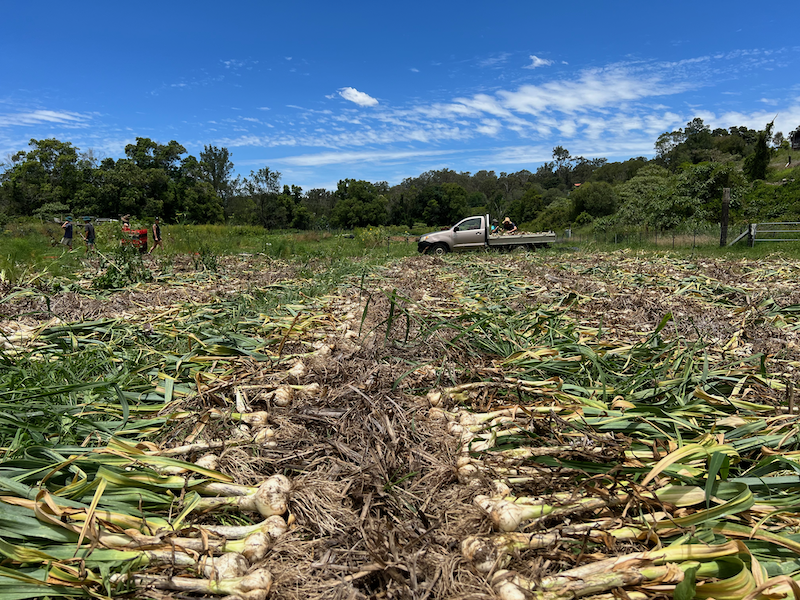
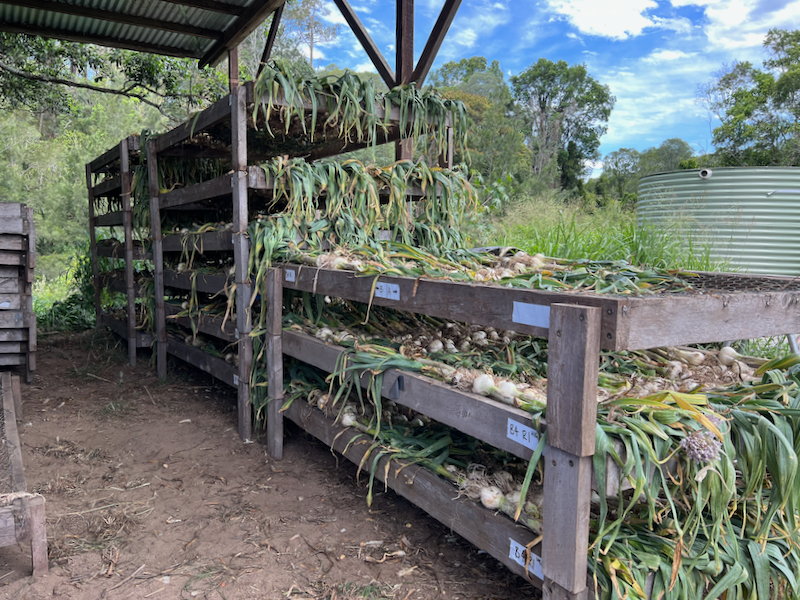
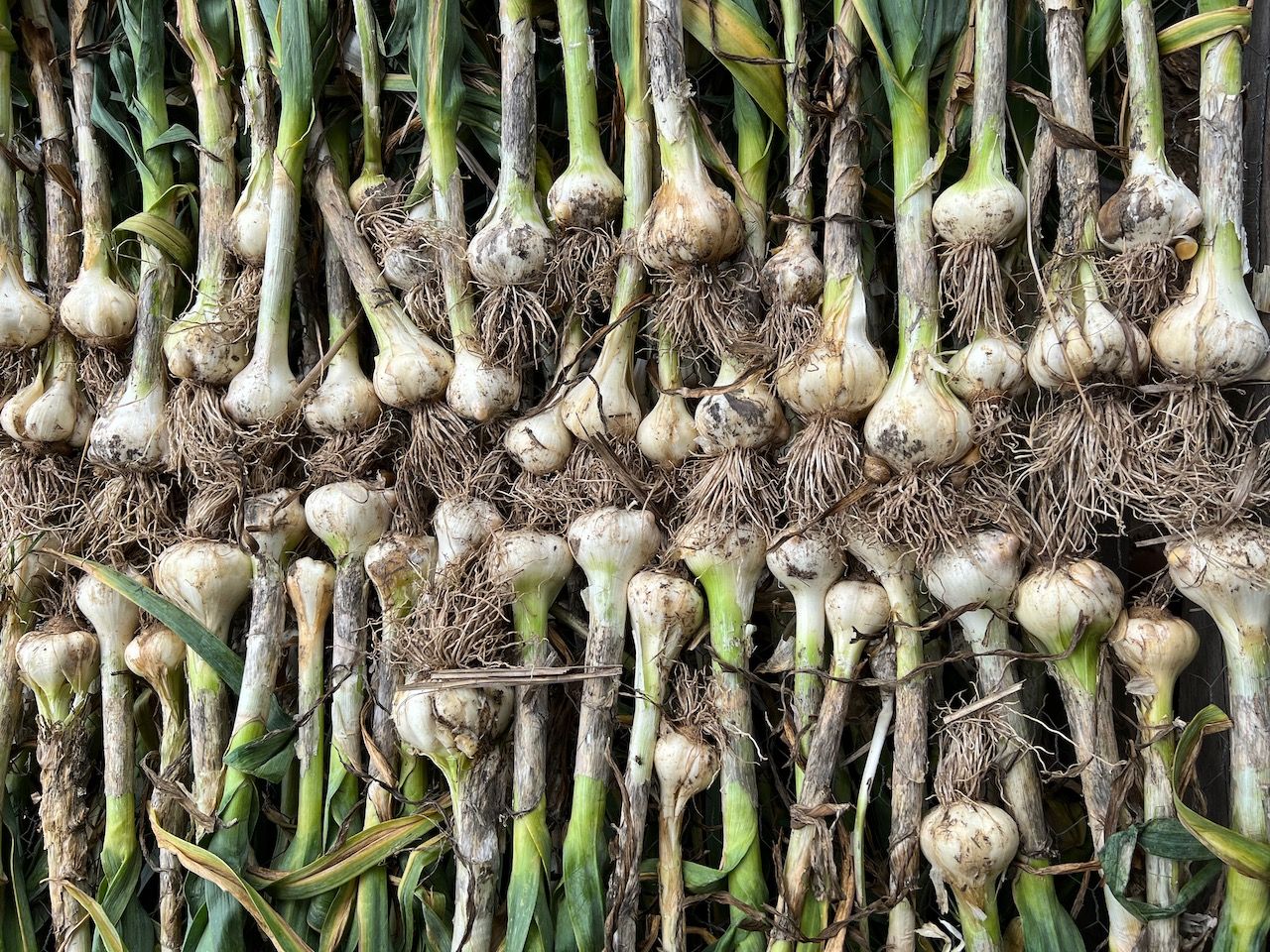
Resource constrained
Garlic hanging, late afternoon o’clock, sitting on the front deck of the barn where they host weddings sometimes at the top of the hill looking over the fields. I see a pile of logs, a donation, an old broken tractor, a donation, the shed that we had lunch in wasn’t there a year ago and the smaller one next to it wasn’t there a year before that. Both donations or close to it.
Things are tight. Every expense accounted for. Much of what goes on wouldn’t be possible without volunteers.
The business mind in me thinks what would change if cash flow wasn’t constrained. The romantic in me thinks that’s the way things are supposed to be. Plants don’t grow faster if you pay them. Chickens don’t lay more eggs if you pay them. But more money does buy more chickens.
I look over the ridge and see what the people here have accomplished over the past six years with minimal resources and high energy. And I imagine what could be done if supply met demand.
Perhaps the whole day’s been a metaphor. The limiting factor is nature itself. Instead of pouring more into the system, the idea is to integrate with it. Like the swinging glass door at a cafe, pushing or pulling as much as you need.
Sore but satisfied
Back at my car. I stop and stare at the fields we were in all day. Talking and digging garlic out of the ground.
And see the subtle changes. Rows once flush with garlic stalks now empty soil beds waiting for the next crop. My hands are red and my body aches all over. A good kind of sore. Digging holes all day but feeling full.
I get in my car, start it, pull out and beep twice to say see you next week.
